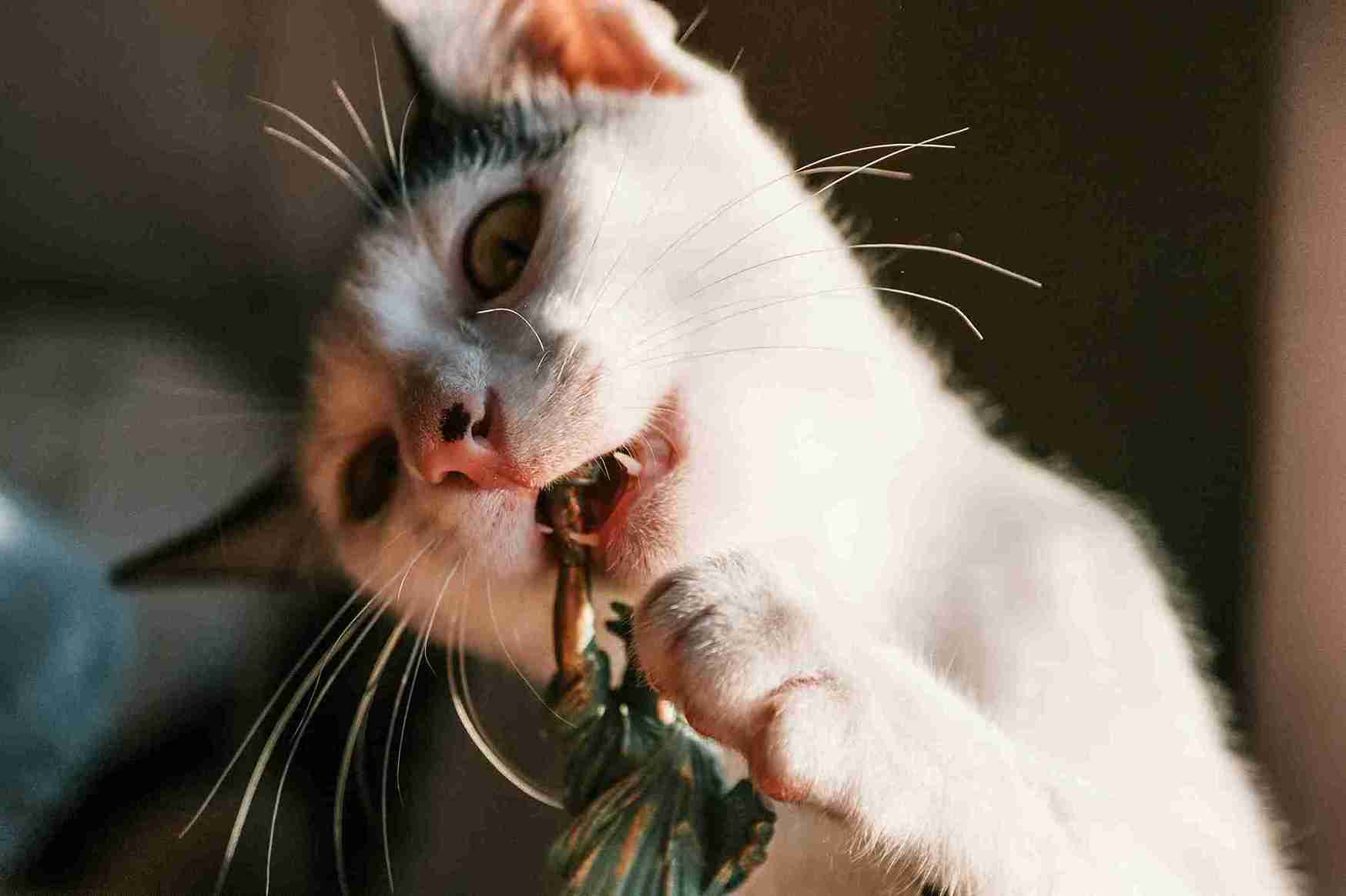Introduction: Understanding Cats and Spider Bites
Many cat owners believe that cats are naturally immune to spider bites—but that’s a myth. While cats are agile and have fast reflexes, they are not protected from spider venom. Even a tiny spider can bite if your cat provokes it, gets too close, or explores areas where spiders hide. Ignoring the risk can lead to unexpected health issues.
Spider bites can affect both indoor and outdoor cats. Outdoor cats face a higher risk of venomous spiders, such as Black Widows and Brown Recluses. Indoor cats, however, aren’t completely safe either. Spiders can sneak into basements, garages, or even cozy corners of your living room. That means awareness and vigilance are essential, regardless of whether your cat ventures outside.
Understanding cats and spider bites is crucial. Understanding the symptoms, risks, and correct treatment can spare your cat from pain or serious issues. This guide covers all you need to know. It includes how to identify a bite, prevention tips, natural or safe remedies, and when to call the vet. We’ll also highlight key signs and cat spider bite symptoms to help you act quickly if your cat is at risk.
Can Spiders Really Bite Cats?
The short answer is yes—spiders can and do bite cats, but it usually happens when the cat disturbs the spider. Most spiders in and around homes are harmless, but some carry venom that can affect your cat’s health.
Common Spiders Around Homes and Yards
Cats may encounter:
- House spiders – usually harmless, may cause mild irritation
- Wolf spiders – non-venomous, may bite if threatened
- Black Widows – highly venomous, serious health risks
- Brown Recluse – venom can cause tissue damage and systemic symptoms
Venomous vs Non-Venomous Spider Bites
Not every spider bite is dangerous. Non-venomous spiders might leave small red marks or cause minor itching. Venomous bites, on the other hand, can cause:
- Swelling at the bite site
- Pain or tenderness
- Lethargy or behavioral changes
- Vomiting, fever, or other systemic reactions
Toxic Spiders That Pose a Risk to Cats
- Black Widow: Recognizable by its shiny black body and red hourglass marking. Bites can cause muscle spasms, drooling, or severe pain.
- Brown Recluse: Often brown with a violin-shaped mark. Bites can lead to skin necrosis and serious systemic symptoms if untreated.

Common Symptoms of Spider Bites in Cats
Many people think a cat bitten by a spider will always show obvious signs, like bleeding or large wounds. But that’s not true. Spider bites in cats can be hard to notice at first. If you ignore them, small symptoms may quickly lead to serious health issues.
Recognizing the signs early is key. Cats may not always show obvious pain, but their behavior and skin can give clues that something is wrong.
Skin Symptoms
- Red spots or small bumps: Often the first sign of a bite, appearing at the site of the spider’s bite.
- Swelling or lumps: The area may feel warm or raised, sometimes forming a small lump.
- Itchiness or irritation: Your cat may scratch, lick, or bite the affected area excessively.
These can indicate a cat skin infection from bites or a mild local reaction. Keep an eye on any persistent marks to catch problems early.
Behavioral Changes
Spider bites can affect your cat’s mood or movement. Watch for:
- Lethargy: Your cat seems unusually tired or less active.
- Hiding: Cats may retreat to quiet corners to avoid discomfort.
- Limping or difficulty walking: If the bite is on a paw or leg, mobility might be affected.
Behavioral changes are often early symptoms of spider bites in cats, and noticing them quickly can make a big difference in treatment.
Severe Reactions
Some spider bites, especially from venomous spiders, can trigger serious health issues:
- Vomiting or drooling
- Fever or rapid heartbeat
- Difficulty breathing or distress
These symptoms may mean venom toxicity or a severe allergic reaction in cats. They need immediate veterinary care.
Immediate veterinary care.
Types of Dangerous Spider Bites in Cats
Not all spider bites are the same, and some species can cause serious harm. Understanding the types of dangerous spider bites in cats can help you respond quickly and appropriately.
Black Widow Bite
- Signs: Severe pain at the bite site, muscle spasms, drooling, restlessness.
- Risks: Can affect the nervous system and cause systemic reactions in sensitive or small cats.
- Severity: Bites from a Black Widow can be life-threatening, especially for kittens or elderly cats.
Visual Description: A small red mark at the bite site, sometimes with mild swelling. Cats may lick the area obsessively.✔ Brown Recluse Bite
- Signs: Red or purple lesion, necrotic tissue over time, swelling, and possible ulceration.
- Risks: Can lead to secondary infections, skin tissue damage, and systemic symptoms like lethargy or fever.
- Severity: Often requires veterinary attention; untreated bites can cause serious complications.
Visual Description: Starts as a small red bump, later forming a dark, sunken center surrounded by inflammation.
First Aid and Treatment for Spider Bites
Many cat owners believe a spider bite always needs a vet’s help. But some mild bites can be treated at home if done right. Knowing the right steps is key to avoiding infection or worsening symptoms.
Step-by-Step Home Care
- Stay Calm and Keep Your Cat Calm – Avoid panicking; cats can sense stress. Hold your cat gently in a safe, quiet space.
- Clean the Bite Area – Use mild soap and lukewarm water to gently clean the bite site. This prevents bacterial infections.
- Apply a Cold Compress – Wrap ice in a cloth and apply for 5–10 minutes to reduce swelling and pain.
- Observe Closely – Monitor your cat for changes in behavior, swelling, or spreading redness over the next few hours.
Natural Remedies vs Veterinary Care
- Mild bites: Some owners might try aloe vera, chamomile, or other natural anti-inflammatories to calm the area.
- Severe bites or venomous spiders: Always seek veterinary care. Even if the bite seems minor, cats can have unpredictable reactions.
Anti-Inflammatory and Topical Care
- Topical care: Use vet-approved creams or sprays to reduce itching and inflammation.
- Anti-inflammatories: Only use meds your vet suggests. Never give cats human medications.
- Monitor for Infection: Watch for pus, bad smells, or spreading redness. These signs show a secondary infection that needs professional care.
When to Call the Vet
Some spider bites require immediate professional attention. Many owners assume mild care at home is enough, but venomous bites or severe reactions can become life-threatening quickly.
Emergency Signs
Seek vet care immediately if your cat shows:
- Severe swelling at the bite site
- Persistent vomiting or drooling
- Difficulty breathing or wheezing
- Extreme lethargy or unresponsiveness
Why Professional Care is Essential
- Venomous bites (Black Widow, Brown Recluse) can affect the nervous system, heart, and skin.
- Vets can administer antivenom, pain relief, fluids, and antibiotics if needed.
- Early intervention reduces complications and recovery time.
Preventing Spider Bites in Cats
Many cat owners think that indoor cats are completely safe from spider bites—but that’s not true. Spiders often hide in quiet areas, including corners, basements, garages, or behind furniture. This puts indoor cats at risk. Preventing problems is better than fixing them. Simple steps can help keep your cat safe.
Tips for Indoor Cats
- Keep Spaces Spider-Free: Regularly vacuum, dust, and remove clutter where spiders hide.
- **Natural Deterrents:** Use pet-safe options like citrus sprays, cedar blocks, or essential oils. Lavender and peppermint are safe for cats. Avoid strong chemicals.
- Monitor Hiding Spots: Look behind curtains, under sofas, and inside cabinets. Cats love to explore these places.
Tips for Outdoor Cats
- **Supervision:** Watch outdoor cats, especially at dawn or dusk. That’s when spiders are most active.
- **Safe Zones:** Make cat-safe spaces, such as screened porches or fenced yards. This helps limit contact with venomous spiders.
- **Avoid High-Risk Areas:** Keep cats clear of woodpiles, tall grass, sheds, and compost heaps. Spiders like to hide in these places.
Regular Checks
- While grooming or during shedding, inspect your cat’s skin for small red marks, bumps, or swelling.
- Spotting a bite early can help avoid complications and cut down on emergency care needs.
Special Considerations
It’s a common misconception that all cats react the same way to spider bites. Some cats are more vulnerable due to age, health, or immune status. Knowing which cats need extra care can help prevent serious complications.
✔ Cats With Allergies or Weakened Immune Systems
- Cats with existing allergies may experience more severe reactions to bites.
- Weakened immune systems can slow healing and increase the risk of secondary infections.
- Extra monitoring and faster veterinary intervention are recommended.
Senior Cats or Kittens
- Older cats may have a slower recovery from venom or inflammation.
- Kittens are smaller and more sensitive to toxins, making even mild bites risky.
- Handle with care and monitor closely after any suspected spider exposure.
Safe Cleaning and Pest Control Products
- Avoid harsh chemical pesticides; use cat-safe sprays, traps, or natural deterrents.
- Make sure any pest control used at home is safe for cats and helps lower spider numbers.
FAQs About Cats and Spider Bites
Many cat owners think spider bites are always clear or that indoor cats are safe—but that’s not the case. Even indoor cats can find spiders in corners, cabinets, or garages. Bites may be subtle at first. Here are the most common questions cat owners ask about cats and spider bites.
Q1: Can indoor cats get spider bites?
Yes, indoor cats can get spider bites. Spiders are great at hiding. They can sneak into homes through tiny cracks, windows, or doors. Even a single encounter with a venomous spider, like a Black Widow or Brown Reclus,e can be risky for your cat. Regular home checks and safe pest control measures are essential to reduce this risk.
Q2: How long does it take for a bite to heal?
Healing time depends on the spider species, your cat’s size, and health condition:
- Mild bites: Usually heal within a few days with proper cleaning and monitoring.
- Venomous bites: May take several weeks, and medical treatment is often required. Always watch for redness, swelling, or pus. These may signal infection or slow healing.
Q3: What is the difference between a spider bite and other insect bites?
- Spider bite: Typically shows one puncture mark. It might be red or swollen. Sometimes, there’s a small lump or dead tissue, especially with venomous species.
Other insect bites, like fleas or mosquitoes, often show up as multiple small red bumps. They can be itchy and are usually more superficial. Monitoring your cat for behavioral changes and unusual symptoms helps distinguish between bit.es
Conclusion: Keeping Your Cat Safe from Spider Bites
It’s a common misconception that cats can handle spider bites without any problem. Even a small bite can lead to pain, infection, or serious health problems. This depends on the type of spider and your cat’s vulnerability.
Key Takeaways
- Watch for red spots, swelling, and behavioral changes as early signs.
- Administer first aid carefully, using cleaning, cold compresses, and vet-approved topical care.
- Keep your home spider-free to prevent bites. Check your cat when it’s outside, and use safe pest control methods.
- Consult your veterinarian promptly for any suspicious bites, especially from venomous spiders.
Proactive Measures
Foster a culture of care: check your cat often, keep their space safe, and watch for signs of spider bites. Investing in preventative measures protects your feline friend’s health and happiness.


Leave a Reply